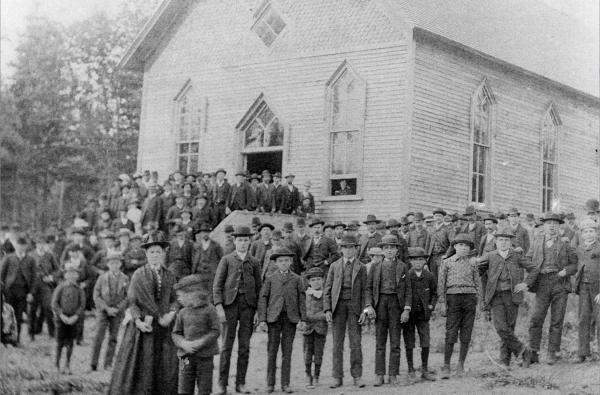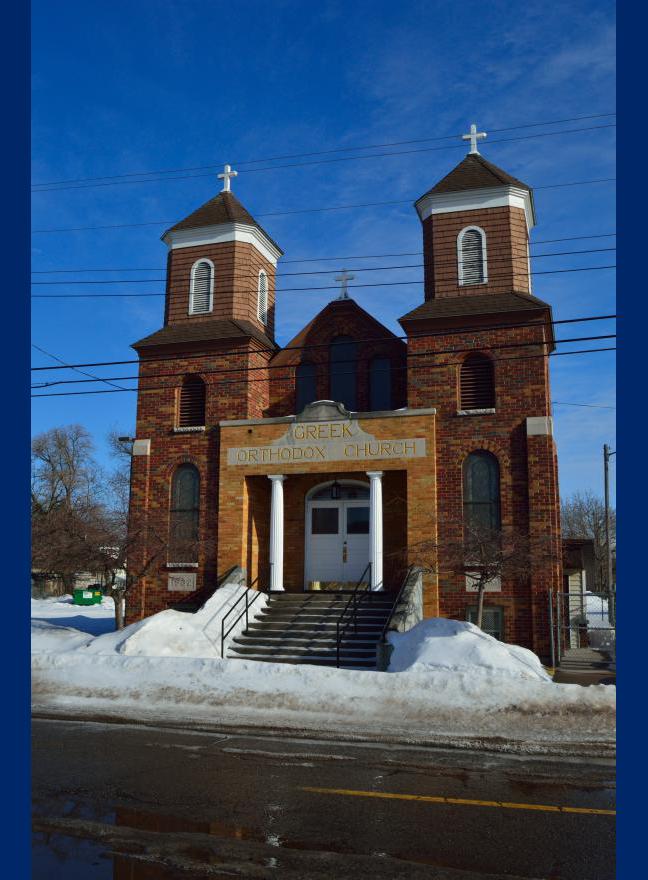Along with their family, possessions, and dreams, what many immigrants held most dear was their religious faith. In truth, when most immigrants arrived at their final destination, the community often did not have a congregation or church serving their needs. Where many were Lutherans, the denominations all had very distinct practices and beliefs. For Catholics, congregations were often separated by ethnicity. Therefore, once a community of Finns, French-Canadians or other ethnic groups were established, one of their first goals was to build their own church. These community efforts sometimes took years to accomplish but in the end, created a home for each faith in every community.
This was particularly hard on Greek Orthodox and Jewish groups because they had no parent faith in the community until they could create their own congregation. Services and prayer meetings were held in people's homes until enough money could be saved to build their own church or temple. However, most communities did not have orthodox priests or rabbis to lead services, so they would be brought in from outside the community for temporary stays until a full-time replacement could be afforded. Regardless of these struggles, communities would succeed across the U.P. in establishing their own churches and temples simply because it was central to their lives and culture.
Today, many of the ethnic Catholic churches have been closed as dwindling congregations led to the consolidation of parishes. A similar fate befell Lutheran and other denominational churches across the U.P. Still, faith and religion are an important part of the lives of many Yoopers and remain a connection to their ancestors lives across the ocean.

St. Anne Catholic Church, Chassel.
Image courtesy of Dave Bezotte

